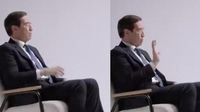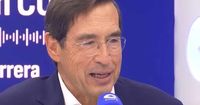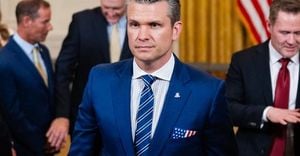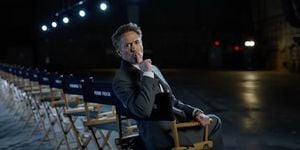In a world where leadership is often misconstrued as an exercise in authority, Dr. Mario Alonso Puig, a prominent surgeon and expert in personal development, offers a refreshing perspective. He argues that true leadership is not about pushing people forward but rather about attracting them. This concept, which he succinctly summarizes as a "pull" rather than a "push," highlights a fundamental shift in how we perceive leadership. According to Puig, genuine leadership emanates from within and radiates outward, influencing others through inspiration rather than imposition.
Dr. Puig emphasizes that a true leader must possess a clear vision, one that is not only inspiring but also capable of visualizing possibilities that benefit many. "A leader lives with a level of enthusiasm because they can envision a future that would be good for many people," he explains. This ability to imagine a better future and to share that vision with others is, in Puig’s view, one of the cornerstones of effective leadership.
However, vision alone is insufficient. A leader must also be knowledgeable, understanding their subject matter deeply. "They know what they're talking about, not just opining," Puig asserts, underlining that authority stems from competence. This competence helps build trust and respect, essential for any leader aiming to guide others.
Coherence is another critical trait that Puig identifies. He warns that inconsistency can undermine credibility. "Incoherence often kills everything. You say one thing and do the opposite," he cautions, noting that credibility is built through actions aligned with one’s words. In a world where leaders are often scrutinized, maintaining this alignment is vital.
Character and empathy also play significant roles in defining a true leader. A leader should be approachable and empathetic, qualities that foster connections with others. Puig succinctly summarizes his philosophy on leadership with five key attributes: inspiring vision, competence, coherence, character, and chemistry.
Alongside his insights on leadership, Dr. Puig has also delved into the often misunderstood concepts of error and failure. He asserts that while failure is one of humanity's greatest fears, making mistakes should not be viewed as the worst outcome. Instead, he believes that learning from errors is one of life’s most valuable lessons, presenting opportunities for growth and development.
In a recent discussion, Puig quoted the philosopher Confucius, stating, "The evil is not in having faults, but in not trying to correct them." This perspective shifts the narrative around failure, suggesting that the real problem lies not in making mistakes but in failing to learn from them. He articulates a crucial distinction: "Error differs from failure in that you learn nothing from failure. Everyone wants to succeed, but defining success is complex," he notes.
Understanding the true meanings of these concepts can be transformative, according to Puig. He believes that redefining success is a personal journey, one that each individual must undertake. He emphasizes that failing at a moment does not equate to failing in life, using the examples of Walt Disney and the Beatles, who faced significant setbacks before achieving remarkable success.
"Failure or success are not fixed elements. Many people, like Walt Disney, faced numerous failures early on. John Lennon and Paul McCartney seemed destined for failure in music, yet they became iconic with the Beatles," Puig reflects, underscoring that the path to success is often riddled with challenges.
Puig highlights the importance of recognizing the difference between an error, which can be a learning opportunity, and a failure, which is characterized by a lack of learning. He cites American professor Cosgrove, who said, "A failure is an error from which you learn nothing." This distinction is crucial for personal development and growth.
In his discussions, Puig encourages individuals to dedicate time to envisioning the life they desire. "Dedicate five minutes a day to imagine the life you would like to live," he advises, suggesting that this practice can help clarify goals and aspirations. Self-love and personal growth, he argues, are essential tools for achieving happiness and maintaining emotional well-being.
While he acknowledges that making mistakes is not a guaranteed recipe for success, he insists that it can serve as a tool for redirecting our ideas and reshaping the goals that guide our lives. Understanding and learning from our errors can ultimately lead to significant personal transformation.
In summary, Dr. Mario Alonso Puig’s insights into leadership and personal development resonate deeply in today’s fast-paced world. His belief that true leadership is about attraction rather than imposition, coupled with his nuanced understanding of error and failure, provides a roadmap for individuals seeking to lead effectively and live fulfilling lives. By embracing the lessons that come from mistakes, and by cultivating the attributes of effective leadership, individuals can not only enhance their own lives but also inspire those around them.






